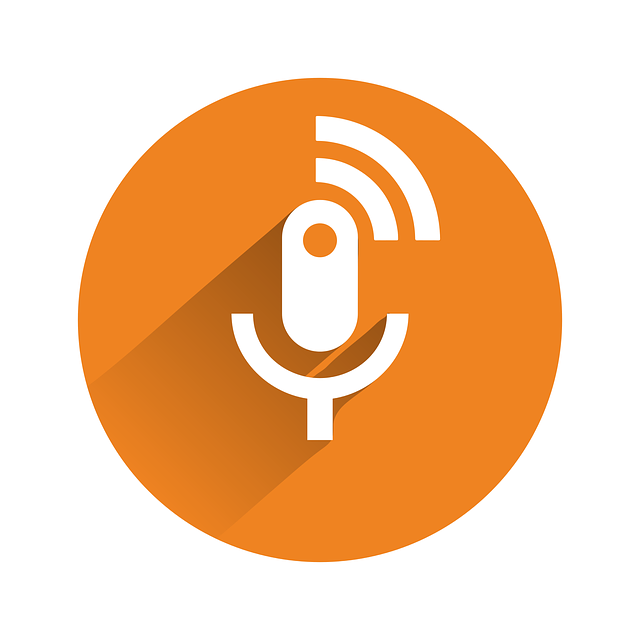What is a podcast
Podcasts are episodic audio-only series that involve one or more hosts engaging in conversations about specific subjects. These podcasts cover a wide range of topics, including current events, true crime, and beekeeping.
Reasons to start a podcast
There are several compelling reasons to begin a podcast, with the most prevalent ones being:
- You want to build an audience. The most successful podcasts reach millions of listeners. A podcast is a relatively inexpensive way to build a following.
- You want to build credibility as an expert in your niche or industry. Thanks to
- You want another stream of revenue or income. Because podcasts are a more intimate medium, they can be a powerful way to sell your product or service. If you don’t have a specific product or service you’d like to sell, you may eventually be able to monetize your podcast by playing sponsored advertisements and earn money that way.
- You want to build your network. Through podcasting, you can meet other people who are interested in what you talk about and can help you further your career or business.
- You want to have fun. You don’t have to have a particular business or monetization goal in mind to start a podcast. You can record a podcast purely for your own enjoyment.
Common misconceptions about podcasts
Don’t be deterred from starting your own podcast by common misconceptions that anyone can start one, regardless of their prior work or life experience.
- You Need a Specific Skill Set. The only skill you need to have, per se, is the ability to talk about or discuss something. You don’t technically need to be an expert in anything, either, so long as you are passionate about what you’re discussing. Expertise is a nice-to-have, whereas passion is a must.
- You Need Expensive Equipment. You can start a podcast with the equipment you likely already own. You don’t need to spend a dime on extra gear or software. There are many free tools and resources available to get you off the ground.
- Podcasts Are a Dying Medium. Podcasts aren’t going anywhere, nor are they becoming any less popular. The podcasting space is so profitable and active that media companies such as Spotify and Apple are investing large amounts of money in the space in order to draw listeners (and revenue) in.
- You Need a Large Following. While it will help you get more listens in the beginning, you don’t need to be an existing celebrity or social media personality in order to start a successful podcast. You can earn a following by putting out excellent content that resonates with people.
- Podcast Episodes Need To Be Long. There is no set length that a podcast has to be. You can make your episodes as short or as long as you see fit and depending on your audience.
How do podcasts make money
The sheer number of ways available to generate income from your podcast makes monetization highly stimulating.
It is important to consider that various methods of making money are more suitable and efficient depending on the stage of growth. What may be successful for a well-known and established podcast might not be as feasible for a newly launched show, and that is completely acceptable!
Expand your audience to attract advertisers
Including advertisements in your podcast should be a definite decision for podcasts that already have a large and loyal audience. Brands and companies are willing to pay a higher price to reach your listeners. However, podcasters with a smaller number of listeners should focus on expanding their audience before they can attract advertisers. If you dedicate effort to effective marketing, branding, and word-of-mouth strategies, your listenership will grow naturally.
Making money with advertisements and sponsorships during the show
Sponsorships and advertising deals offer high financial benefits and demand minimal effort from you (apart from finalizing the agreement, of course). As these brands and companies compensate you for visibility, the larger your audience, the higher their payment will be.
People who regularly listen to podcasts are likely to recognize the well-known phrase ‘brought to you by x,y and z,’ which is essentially an indication of sponsorship. Several podcasting ad agencies exist to assist podcasters in establishing connections with advertisers, taking care of all the necessary logistics and administrative tasks in exchange for a fee.
If your podcast is small and focuses on a specific topic, you have the option to contact niche companies that cater to your target audience. It’s possible that a beneficial partnership could be awaiting you.
How to make money with a podcast
There are multiple ways to generate income with a podcast. Some strategies can be successful even without a large audience, while others depend on demand and viewership. Regardless of the avenues you select, it is crucial to have multiple sources of revenue as a podcaster. Relying solely on one income stream increases your financial vulnerability.
Sponsored ads (or Episodes)
If you’ve ever tuned in to a well-liked podcast, there’s a good chance you’ve come across a podcaster delivering a sponsored advertisement. Certain companies are willing to compensate you for reciting a concise script on your podcast that promotes their product.
Making money through ads can be relatively easy, but it often necessitates a substantial audience and specific demographic information. To determine if your podcast suits their advertisement needs, companies will assess your number of listens or downloads, as well as details about your audience.
Ask for donations
As the famous saying suggests, if you fail to inquire, you will not receive. Requesting donations from your audience stands as potentially the most straightforward and uncomplicated method to generate income from your podcast. Devoted and encouraging listeners have the option to contribute funds to uphold your podcast using platforms like Patreon or PayPal.
Offer paid membership tiers
If you have a dedicated and enthusiastic group of fans, one effective way to earn money from your podcast is by offering paid membership levels. This method of monetization works well because it gives your listeners the feeling of receiving exclusive and personal access to unique content, benefiting both parties involved.
For podcasters who prefer to remain independent from brand partnerships, implementing a membership scheme allows them to maintain this independence while still generating income from their podcast. Alternatively, if you have already secured a profitable advertising agreement, you can provide an option without advertisements for your paying members. Remember, where there is determination, solutions can be found.
What are Podcast Memberships
A podcast membership is essentially a subscription that offers a more personal experience. By setting a certain fee, your listeners can make regular payments in return for exclusive content and features. Podcast memberships not only provide a reliable income stream but also foster a sense of community among your audience. It’s a mutually beneficial arrangement.
Podcasts with a dedicated and loyal fan base who consistently follow and engage with your content are the ones that will benefit the most from a membership model.
How to use memberships to monetize a podcast
Ensure your membership is worthwhile
Although many of your listeners may support you and believe in the future of your podcast out of goodwill, you should not depend solely on their support. Since you are requesting a regular payment from your listeners, it is crucial that they feel like they are receiving fair value in return.
Create bonus or premium content for subscribers
You can have fun and be creative with the exclusive content you offer to your members. The creation of a membership scheme can require varying degrees of effort, depending on your preference.
You have the option to create more episodes, have your audience watch your recording sessions live, or seek their input for future content. The decision ultimately depends on what you believe your audience would be willing to pay for.
Create tiered memberships
By offering different levels with progressively better features and exclusive perks, you can cater to varying price points and potentially entice even individuals with a limited budget to become members.
While a basic subscription involves a small charge for a basic shout-out during your show, a premium membership provides the opportunity to attend live events where your listeners can have the chance to meet you either in person or online.
Consider the option of becoming a part of Apple’s Podcasters Program, which allows for the sale of subscriptions via Apple Podcasts. Alternatively, you could explore the possibility of establishing membership plans using Patreon.
Get sponsorships or sell ads
If you have a large audience or target a specific group of listeners, it should not be difficult to obtain a sponsorship or advertising agreement. When you sell a sponsorship or advertisement, you are essentially selling the opportunity to have air time before (pre-roll), during (mid-roll), or after (post-roll) your episode.
Mid-roll is the most sought-after ad placement, hence it is the most costly, since it minimizes the chance of listeners skipping. Similarly, post-roll is the least impactful placement, making it the least expensive, as listeners either discontinue listening or skip to the subsequent episode.
There are two common types of podcast advertisements.
The product is promoted by the host. As the host, you discuss and share information about the product or service being mentioned. This alternative can be less disruptive or distracting to the progression of your episode.
Pre-recorded advertisements are provided by the brand or company purchasing the ad space. Your only task is to incorporate the recording into the designated episodes as agreed.
Join an advertising network
Podcast Advertising Networks, like Midroll, aim to simplify your life by connecting podcast hosts with potential brands and sponsors. This eliminates the need for you to search for them on your own.
Sell repurposed content
Make sure you make the most of your valuable and insightful podcast by transcribing it using Riverside’s automated transcription function. This will allow you to repurpose your episodes without any hassle.
After obtaining the transcription of your podcast, you have the option to edit it into an article and attempt to pitch it to well-known publications that cater to your specific niche.
Syndicate your show to YouTube
If you choose to syndicate your podcast to YouTube, you will be adapting your show by sharing it as a video on the platform. Even if you are unable to record a video using Riverside.fm, there is no need to be concerned as you can effortlessly publish your podcast audio along with your podcast cover art serving as the video’s image.
What is the YouTube partner program
The YouTube Partner Program provides the opportunity to make money from your YouTube content. Additionally, it grants you access to various YouTube resources and features.
How to use the YouTube partner program to monetize a podcast
If you want to make money from podcasting, the YouTube Partner Program is an option to consider. However, keep in mind that you must meet specific eligibility requirements, as well as have a minimum number of subscribers and viewers, in order to join the program. Sharing your podcast on YouTube can help you reach a larger audience, including those who might not typically listen to podcasts on traditional platforms.
Here is an orderly guide on how to generate income from podcasting by utilizing YouTube.
You will receive a share of the revenue for any advertisements that are shown alongside, overlaid, or played before or during your content.
Channel Membership is analogous to setting up different levels of membership for your podcast, where subscribers have the option to make a monthly payment in order to receive additional benefits and exclusive content.
YouTube offers the opportunity to generate extra income by enabling you to sell your own branded merchandise directly on your channel.
When a viewer who is a YouTube Premium subscriber watches your content, you will receive a share of the payment they made for their subscription.





